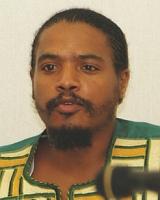 Is this a blessing? Who is to blame for Africa’s misfortunes?
Is this a blessing? Who is to blame for Africa’s misfortunes?Submitted by Herta Malita Shikapwashya
KNN Staff-International Geopolitics Reporter
Where is Zambia? Formerly known as Northern Rhodesia, The Republic of Zambia, a peaceful landlocked country is located in South Central Africa and surrounded by 8 neighbors: Angola on the West, Botswana, Mozambique, Zimbabwe and Namibia to the South, Malawi on the East, Tanzania on the North-East and the Democratic Republic of Congo to the North. Zambia is named after the Zambezi River. Zambia, a country lightly larger than Texas, the 39th largest country in the world (after Chile) is divided into nine provinces, and an appointed deputy minister performs the duties of a governor. Each province is subdivided into districts with a total of 72 districts in the country and 72 Bantu speaking tribes. The Provinces are: Central, Copperbelt, Eastern, Luapula, Lusaka, Northern, North-Western, Southern and Western. The capital city of Zambia is Lusaka.
So why are the blessings of discovering oil, in an unknown landlocked country making the news? In order to understand the reasoning readers must have some knowledge of Zambian history.
Zambia a former British colony got her independence on October 24, 1964 under the leadership of Dr. Kenneth David Kaunda. The liberation (struggle for) independence took a great toll on Zambians and its economy. Despite its considerable mineral wealth (copper), there were many challenges as Zambia’s neighbors, Zimbabwe (formerly Southern Rhodesia) and the Portuguese colonies (Mozambique and Angola) were under colonial rule. Additionally, Zambia shared a border with Namibia (formerly South-West Africa) which was under the control of White South Africa. To better understand the price of liberation, Zambia hosted the ANC (African National Congress) to liberate South Africa, Swapo (South-West Africa People’s Organization) to liberate Namibia, Zanu (Zimbabwe African People’s Union) and allied parties to liberate Zimbabwe, MPLA (Movimento Popular de Libertação de Angola translation: The Popular Movement for the Liberation of Angola) and Unita (União Nacional para a Independência Total de Angola translation: National Union for Total Independence of Angola) to liberate Angola. Today, Zambia continues to host and attempt to stabilize other African Countries. Resources that were meant for the local people were utilized not only to support the struggle for liberation, but to also host many refugees that migrated to Zambia to look for a peaceful home. In addition, Zambia has hosted exiled leaders such as the late Milton Obote who died in Lusaka, Zambia (1985-2006). Since independence, Zambia has had other Presidents, Dr. Frederick Titus Chiluba and the current President, Patrick Levy Mwanawasa, sc. Zambia’s prized possessions are peace, and its motto: One Zambia, One Nation.
Zambia has always understood that its independence was incomplete unless her neighbors were equally independent of external interference. Therefore, Zambia positioned herself to champion the liberation of other countries and the result of that was, a number of countries from east and west Africa joining in towards the struggle of independence for Namibia, Angola, Mozambique, Zimbabwe and today, South Africa. A stable Southern Africa is born.
The discovery of Oil
While discovering oil in a landlocked country could bring employment to many of Zambia’s poor people, one must not forget what has already happened in Africa. Zambia has always valued peace and has welcomed many people from all walks of life. But the one thing that Zambians must do is safe guard the peace that most African countries can only wish for. History has demonstrated that wherever there is oil, gold, or diamonds in Africa: there is a war or instability.
So who can be blamed for Africa’s misfortunes? The beautiful thing about African’s is that we are a forgiving people. We continue to forgive despite the fact that we have been raped time and time again. If you are wondering about the who’s, why’s and when’s then all you have to do is read books such as –Confessions of an Economic Hitman, by John Perkins, and if you are not satisfied, then look at some of the richest companies in the world, GlaxoSmithKline (GSK), Firestone, Monsanto and Ford Automobile. Once you conduct your research, you will find that it is not a coincidence that the rest of the world is trying to help Africa. It is not by accident that some of the richest men and women are in Africa conducting “charity work”. The likes of Jay-Z holding concerts; BET’s Bob Johnson’s $30 million dollar donation and consortium; and Bill Gates/Rupert Murdock philanthropy demonstrates high motivation to possibly help. It simply comes down to exploitation of people, exploitation of resources, and exploitation of generosity. Nothing that is going on in Africa is a coincidence or happenstance. The rest of the world owes Africa and her children, and owes them enormously.




